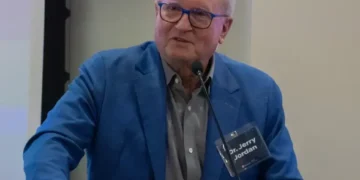
Francis Ford Coppola, director of American classics such as “The Godfather” and “Apocalypse Now,” has returned to the big screen with the science-fiction drama “Megalopolis,” which opened in theaters across the country on Friday, Sept. 27.
This film is set in a decaying futuristic metropolis called New Rome and unites many eras of history in its plotting — from the Roman Republic to the Bush Administration.
The plot follows Cesar Catilina, an idealist architect played by Adam Driver, who aims to build a futuristic utopia entitled “Megalopolis.”
“I will build a city that people can dream about,” Catilina says in the film, much to the chagrin of Mayor Frank Cicero, played by Giancarlo Esposito, and much to the curiosity of the mayor’s daughter, played by Nathalie Emmanuel.
The battle over the future of New Rome sparks widespread political intrigue, incorporating a colorful cast of characters and setting a free-wheeling cinematic narrative in motion that, in a manner only a filmmaker as maddening as Coppola could muster, is both incredibly confounding and remarkably moving.
In an interview with NPR, released on Saturday, Sept. 28, Coppola said that “Megalopolis” has been on his mind since the early 1980s, when was directing the musical “One from the Heart.”
Coppola financed “Megalopolis” from his own pocket, investing $120 million and selling a substantial piece of his famous winery to actualize his decades-long vision.
To say the film is without compromise would be an understatement.
“Megalopolis” is unlike any project that will hit theaters this year and unlike any other film within Coppola’s canon. Further, it breaks the canon of American film history.
While Coppola’s “The Godfather” elegantly carved the mythic out of the specifics of its mafia milieu, “Megalopolis” begins with the mythic and continues piling myth on top of myth for the course of its robust 2 hour-18 minute run time.
Coppola implements every cinematic technique and idea one can imagine and combines them into a massively garish, satirical fairy tale that is overwrought in practically every measure.
One can easily get lost in the contradictory machinations of “Megalopolis,” figuratively grasping for air amidst its wacky world-building and smothering smorgasbord of ideas about human evolution and the end of history.
Yet there is an underlying sincerity to this cinematic manifesto: a profound beating heart that clumsily, though beautifully, rises to the surface in the film’s finale to bewitchingly recontextualize the whole piece.
“Is this society the only one that’s available to us?” Catilina says in a critical midpoint scene, leading one to easily draw a straight line to Coppola’s lofty ideals of what humanity and, in turn cinema, can be.
“Megalopolis” is a film that attempts to stop time and encourages its audience to strive for similarly earnest aspirations. This humane ethos and generosity is especially poignant from the voice of the 85-year-old director, an artist actively acknowledging their own mortality in real time. The film is dedicated to Coppola’s longtime wife, Eleanor, who passed away earlier this year prior to the film’s debut at the Cannes Film Festival.
If we are not seeking to rejuvenate the medium with the limited time we have, or to reexamine the tenets upon which our society was built and leave the world in a better place for our children, what is the point?
In a world where so many of our so-called great filmmakers are seeking to delve further into the past, Coppola is aiming to investigate the possibilities of the future. For all its flaws, “Megalopolis” is transfixing, and it has vividly and profoundly evolved in my mind as time passes. Almost in spite of itself, it is one of my favorite films of the year.





































